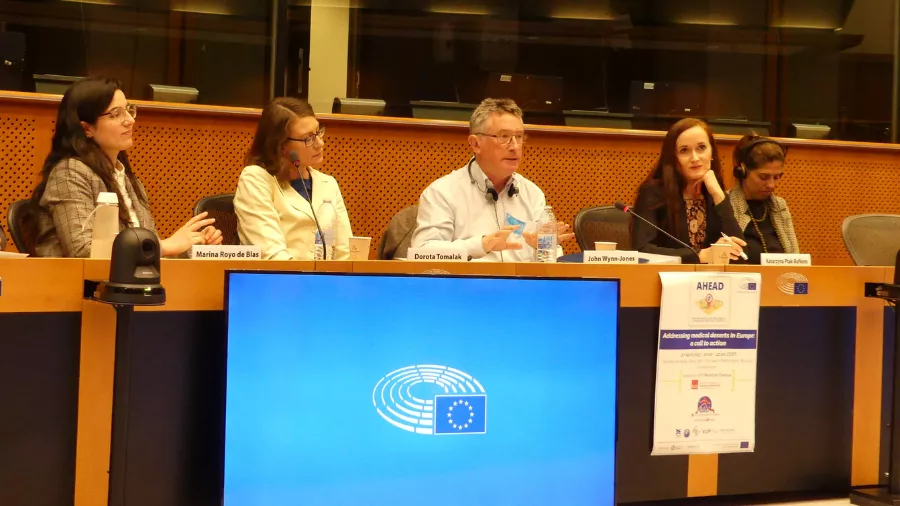Medical Deserts: collaboration and tools for improving access to healthcare
In 2020 DG SANTE published a Call for Proposals inviting project consortia to pitch their solutions for so-called ‘medical deserts’, i.e. isolated or depopulated areas and urban and rural areas with a low concentration of services.

Image by the AHEAD project
Its aim was to support policy makers to improve the availability of health workers in these areas and help solve health inequalities. This ambition resonates very well with the EU’s vision for rural areas, with lively communities with efficient, accessible and affordable public and private services, including health and (long-term) care.
The AHEAD Project (Action for Health and Equity Addressing medical Deserts), led by Wemos in the Netherlands, was one of the initiatives granted funding by the European Commission’s department in charge of health (DG SANTE). Summarising an 80-page grant agreement, the AHEAD proposal was based on three guiding principles:
- the challenges in access to health and care services in rural have many different manifestations, depending on the national health system’s characteristics and local context. To define, identify and measure medical deserts, we needed a flexible method.
- the problems are multi-dimensional in nature and their solutions require a multi-sectoral approach. This means we needed to talk with different actors, with different and complementary perspectives, experiences, expertise and mandate.
- Nobody knows the local context better than the people living and working in that context. We therefore needed to start working bottom-up, make use of local expertise and then link local level solutions to national policies, and ultimately – where needed - to EU initiatives, such as from DG AGRI.
With that in mind, the Consortium set to work on a significant day, 7 April 2021, which is World Health Day.
Fast-forwarding 2+ years, we can safely state that our tools and methodologies align with all three principles. First, we have developed an interactive mapping tool that visually displays the availability of health and care services, and the densities of health and care professionals in the five project countries of AHEAD: Italy, Moldova, the Netherlands, Romania, Serbia. True to our philosophy, this tool can handle data for different health and care services, for different health professionals’ cadres, and on different levels of (geographical) detail. When you visit the above linked webpages you will quickly discover the different approaches in the five countries. The maps have proven helpful in identifying medical desert areas, so that policy makers know where to focus their efforts.
Second, we have delivered a tested and validated methodology for participatory policy-making. In a series of interactive workshops, and starting at the local level in areas where services were particularly compromised, we identified the characteristics of their specific ‘medical desertification’ and explored policy solutions with tasks and responsibilities for all actors involved. This generally included health professionals (such as general practitioners, midwives, community nurses, pharmacists), local level policy makers (mayors, alderman, municipality staff), community and patients’ representatives, and others if and when needed. An explainer slide show and a webinar explaining this methodology are available on the AHEAD website; a comprehensive guidelines document will be published shortly, so that interested parties can roll out this methodology on their own accord.
For those of you with the ambition to implement such a multi-level, place-based governance methodology for rural development: the European Health and Digital Executive Agency (HaDEA) has just published a new call for proposals, one of which (PJ12) focuses on the organisation of conferences and events that stimulate the discussion between science-policy-society, in order to better tackle societal (health) challenges. Feel free to reach out if you intend to develop a proposal for this.